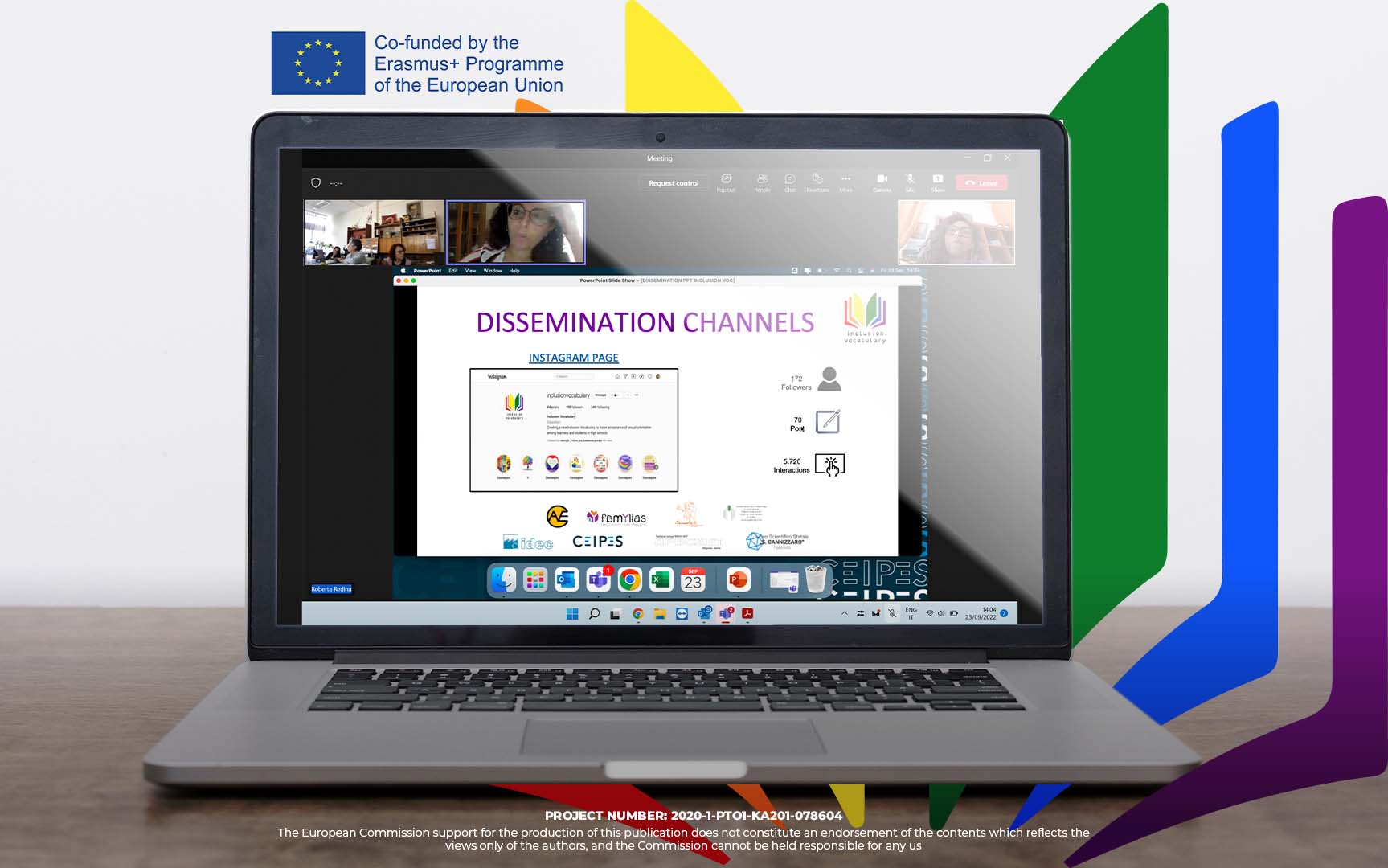INCLUSION VOCABULARY – The consortium met for the second time
On Friday 23 September, the partners of the Inclusion Vocabulary project – Creating a new Inclusion Vocabulary to foster acceptance of sexual orientation among teachers and students in high schools (2020-1-PTO1-KA201-078604) encountered in Sofia, Bulgaria, for the second transnational meeting. CEIPES, which could not be there in a physical way, joined the meeting online.
The project’s objectives in the long run are to create positive and inclusive environments in schools for all students regardless of sexual orientation and gender identity; to accumulate teaching resources and create lesson plans that teach diversity and respect including examples of SOGI topics to reflect the SOGI diversity in students’ lives, families, and society; to extricate any prejudiced or discriminatory words or behaviours from the vocabulary of teachers and students.
The meeting was aimed at analysing and monitoring achievements and results, discussing next steps, and organizing future activities. Beyond CEIPES, the partners attending the event were: AECP (Portugal), ESCUELA 2 COOPERATIVA VALENCIANA (Spain), FAMYLIAS (Spain), IDEC (Greece), Liceo Scientifico Statale S. Cannizzaro (Italy), PROFESSIONAL SCHOOL OF ECOLOGY AND BIOTECHNOLOGY (Bulgaria) and TEHNICKA SKOLA “Drvo art” (Serbia).
During the first part of the meeting, future activities such as pilots, multiplier events and meetings were rescheduled following a new timetable. Later, the creation and the structure of the online video platform for student’s videos was discussed. Then, it was the time to organize the big event of October for students in Porto, that will be hosted by AECP.
At the end, CEIPES made a brief presentation on the dissemination status of the project.
The partners are putting all their effort together to reach great results: the New Vocabulary Handbook, which contains inclusive and accepting terminology regarding sexual orientation and gender identity topics, is available in different languages on the project’s website; the New Vocabulary training course for teachers, which will guide educators through the right implementation of the aforementioned Handbook, will be soon published in all the partners’ languages; the New Vocabulary video stories online platform will be soon realized to contain all the short videos of the students teams for the competition.
To learn more about the project visit the project website and follow the project social media on Facebook and Instagram.
